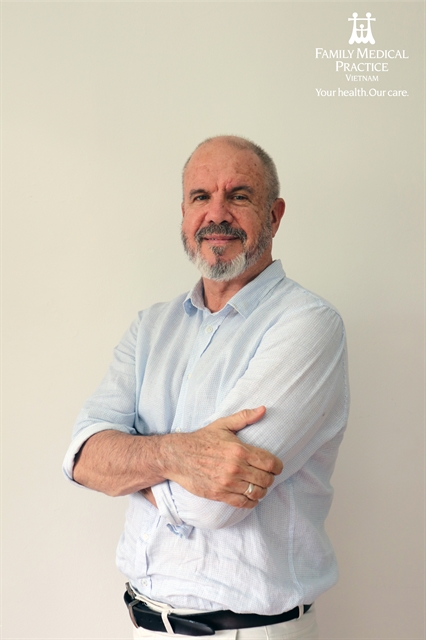 Life & Style
Life & Style
.jpg)

|
| Matthew Ryan. Photo courtesy of Family Medical Practice |
By Matthew Ryan*
In my work as a therapist at FMP, many women seek me out to discuss the worries and concerns they have regarding their relationships with their partners. Often they come along on their own because they want to either check me out to see whether I would be ‘acceptable’ to their partners or because their partners are reluctant to come to therapy. Below you will find some hopefully helpful ideas about how to repair and nourish the relationship you have with your current partner. You can employ these ideas even if your partner is reluctant or even refuses to come to therapy. Even when a couple comes to see me, I encourage them to look in the mirror rather than immediately pointing out to me all the things they find problematic about each other. Changing your own thinking and then changing what you say and do that flows forth from your changed thinking can be very effective in healing and improving your relationships.
Harville Hendrix, a relationship therapist, describes a conscious committed relationship as one in which ‘maximum psychological and spiritual growth is fostered’ - it's a relationship created by consciously attempting to become aware of the ‘emotional baggage’ that each partner brings to the relationship; understanding the possible problems that arise from the ‘clashing together’ of each partner’s emotional baggage and then collaborating together to find creative ways of dealing with their own and the other’s baggage.
In one of the early chapters of his book, Getting the Love You Want, he outlines the ten characteristics of a conscious relationship. Some of these characteristics are as follows: Taking responsibility for communicating your needs and desires to your partner - which involves each partner understanding that the other partner isn’t able to automatically intuit their needs and therefore the necessity of learning to clearly communicate one’s hopes and concerns.
To Accept the Difficulty of Creating a Good Relationship - which means that the secret of achieving a good relationship is not so much finding the right partner but for each partner to be the right partner - and that this involves serious effort, commitment and courage. Each Partner Embracing the Dark Side of Their Personality - in a conscious relationship each partner openly acknowledges their own frailties and weaknesses and accepts the same of their partner - that perfection is not a requirement of a good relationship.
To Realise that You Can’t Change the Other You Can Only Change Yourself - As I mentioned above many partners believe that the only way problems can be resolved in a relationship is for the other partner to change the way they behave.
Partners in a conscious relationship know that they have no power over changing the other’s behaviour but they do have the power to change their own behaviour and that when they do, their partner’s behaviour will also change to accommodate their change.
In the past people stayed together in unhappy relationships and marriages because separation and divorce were seen as a failure or in the case of a marriage a taboo.
Today there is little social stigma attached to separating or divorce, so if partners are to stay together, their relationships must become conscious - one in which both parties are committed to working eachday to keep their relationship growing and healthy.
If any women readers or of course male/couple readers reading this short article are interested in learning to put into practice the principles of a conscious relationship I would be happy to offer my assistance. – Family Medical Practice
*Matthew Ryan is a senior psychologist who has been supporting and assisting people to work through their personal and relational problems, for over 30 years. As a couple's and family psychologist, Matthew’s role is to help each person in the relationship see how they contribute to their dysfunctional ways of relating, and what changes are necessary to resolve their difficulties. Matthew is also experienced in working with teenage males and females as they face the challenges of stepping into young adulthood. In addition, Matthew is experienced in providing counseling to people from the LGBT community.
Family Medical Practice was the first foreign-owned primary healthcare provider in Việt Nam, and has consistently remained at the forefront of international-standard medicine since 1995. It offers extensive healthcare and emergency medical services nationwide to Vietnamese, expatriate and corporate customers.
For more advice on any medical topics, visit www.vietnammedicalpractice.com; www.care24h.com.vn or visit our clinics:
Family Medical Practice Hanoi on 298 I Kim Mã, Ba Đình District or call (024) 3843 0748. Email: hanoi@vietnammedicalpractice.com or
FMP’s downtown HCM City location is at Diamond Plaza, 34 Lê Duẩn Street, District 1; Other facilities are at: 95 Thảo Điền Street, District 2. Tel: (028) 38227848. E: hcmc@vietnammedicalpractice.com.
FMP Danang is located at 96-98 Nguyễn Văn Linh Street, Hải Châu District, Đà Nẵng. Tel: (0236) 3582 699. E: danang@vietnammedicalpractice.com.
.jpg)



